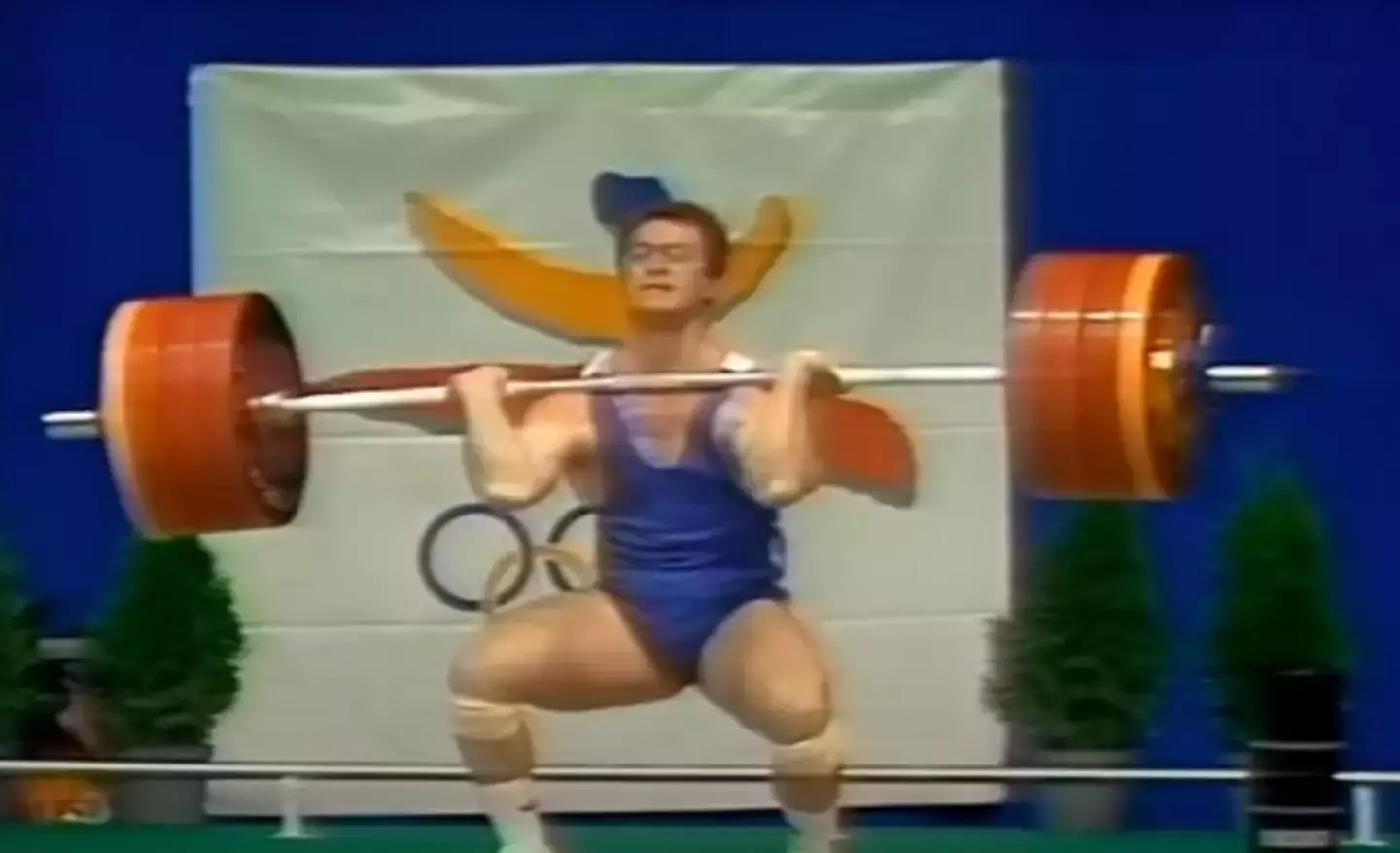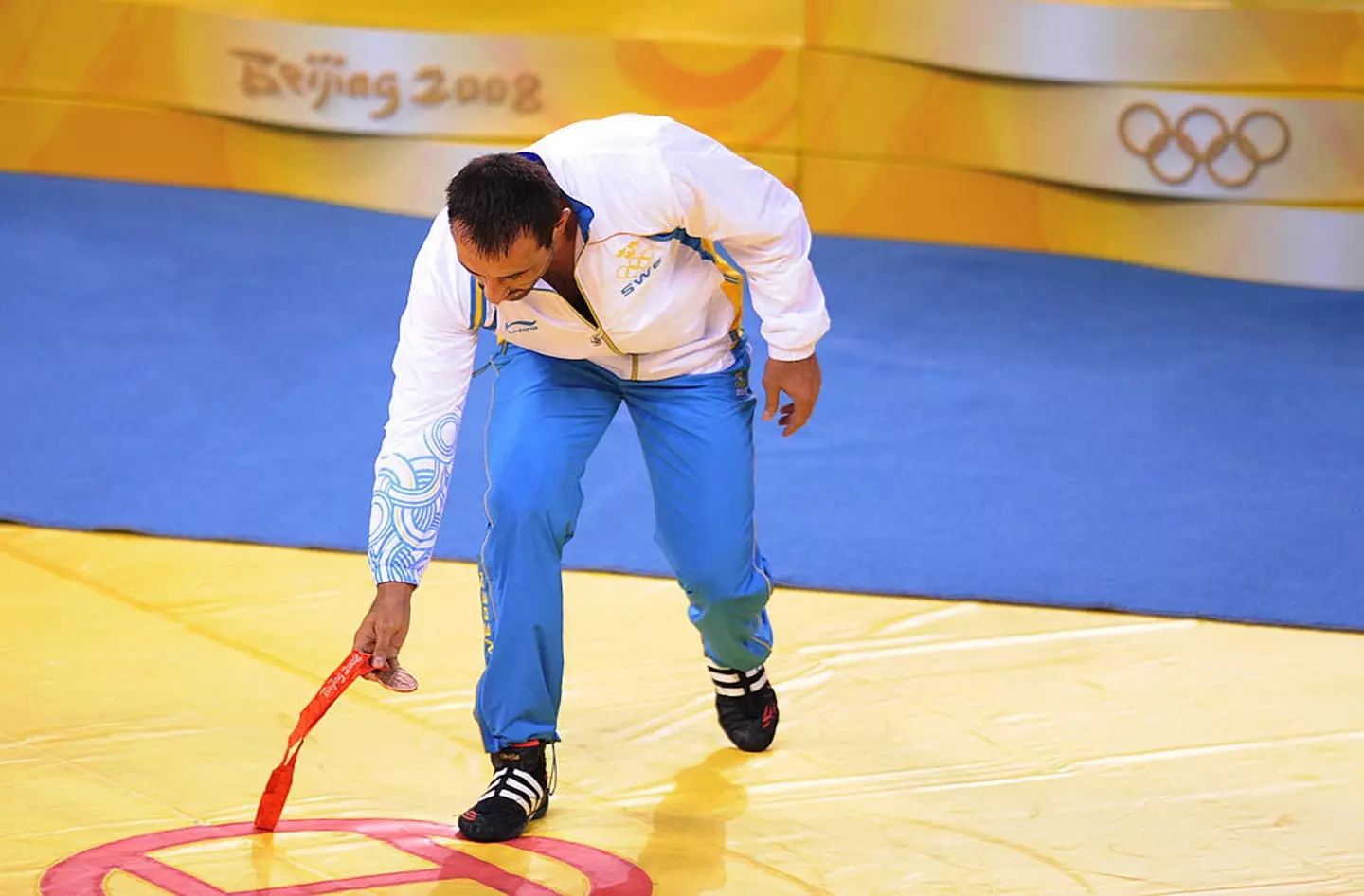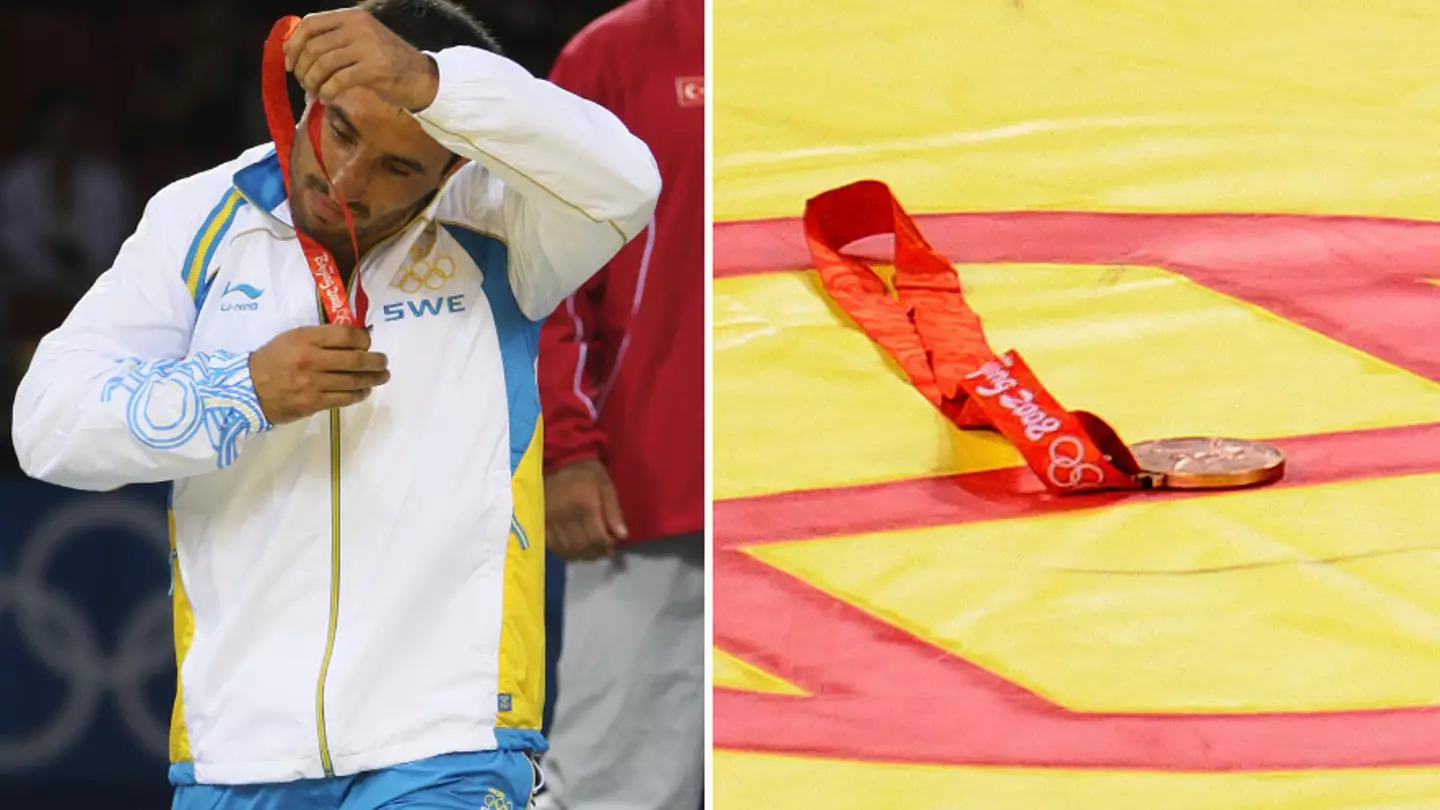There are few honors in the world as glorious as winning a medal at the Olympics, and only an elite class of athletes can say they’ve battled the world and won on behalf of their home country.
However, the coveted gold medal is still most athlete’s primary goal. While getting bronze or silver is remarkable in its own right, falling just short of the top of the podium can leave some athletes distraught and frustrated despite being in the top three of their sport.
However, even in these moments of anger and frustration, it's rare for an athlete to refuse their Olympic medal. This is, in part, because of the work they put in to gain it, but also due to the repercussions involved with disrespecting the sacred prizes.
These repercussions have only come into play for two athletes in the modern history of the Olympic Games, once in 1992 and yet again in 2008.
Advert

The 1992 Summer Olympics in Barcelona was the first to not feature an official Soviet Union team, as the country ceased to exist a year prior.
However, because the team had already qualified for the Olympics prior to the country’s collapse, the Unified Team formed and housed a collective of athletes from the former Soviet Union.
Among these athletes was Ibragim Samadov, a weightlifter who had won gold a year prior at the World Weightlifting Championships in Germany.
Advert
Upon winning the Bronze medal, Samadov refused to allow the medal to be placed around his neck, instead taking it in his hand and promptly dropping it before walking away.
Not only was Samadov greeted by a chorus of boos for his actions, but he was also disqualified from the competition and granted a lifetime ban from Olympic competition. He was subsequently banned from ever entering the Weightlifting Hall of Fame despite his strong track record in the sport before the 1992 Olympics ruined his reputation.
Then, in the Beijing Olympics that took place in 2008, a similar stunt was pulled by a Swedish wrestler named Ara Abrahamian, who won Bronze in that year’s games.

Advert
However, because Abrahamian believed corruption and improper judging cost him a higher medal, he accepted the prize honorably before taking the medal off and placing it on the wrestling mat at the end of the ceremony.
While the wrestler was similarly disqualified and banned for his actions during the ceremony, the IOC (International Olympic Committee) eventually lifted his ban a year later in 2009, though he had already retired from the sport by that point.
The most bizarre, discontinued Olympic sports
Painting
Back in the day, the Olympics dished out medals for art too, with events including painting and sculpture, as well as music, architecture and even literature.
Advert
Making its debut all the way back at the 1912 Olympics in Stockholm and continuing until the 1948 London games, juries awarded competitors a total of 151 medals for artistic projects inspired by sport.
Tug of War
Bet you didn't think this playground classic was once part of the Olympics, did you?
Well, it turns out not only was the sport popular, but it stirred up a lot of drama too - with accusations of foul play flying around at the 1908 Olympics in London, with Team USA accusing Team GB of cheating due to their 'illegal' heavy footwear.
Advert
A mainstay for around five Olympic games from 1900 to 1920, Tug of War enthusiasts have even campaigned for organisers to reintroduce the retired sport back into the Games.
Hot Air Balloon Racing
Launching at the 1900 Olympics, hot air balloon drivers would compete in races scoring how far they could travel, altitude reached, ability to land within the correct coordinates and - to top it all off - who got the best photo from the balloon.
The sport ended up being canned after a ban on motorised sports was brought in.
Live Pigeon Shooting
Also making its debut at the 1900 Olympics, the event was pretty self explanatory - a load of pigeons were released into the air as the competitor tried to shoot as many as possible. Grim.
The event only appeared at the Games once, and all in all, it's estimated that Olympic hopefuls killed around 300 pigeons.
Pistol Duelling
It doesn't take much guessing as to why this event was scrapped, but back in 1906, people clearly didn't bat an eyelid at competitors waving pistols around and shooting at each other.
It began with competitors shooting at dummies, but two years later organisers decided to shake things up and have them shoot at each other with wax bullets. Ouch.
1908 would be the last time the sport was included in the Olympics, so I'm guessing they quickly realised it was a bad idea - wax bullets or not.
